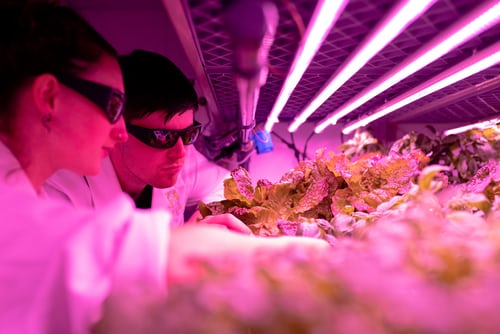Kapanlagi.com - Observation may have become a term that we often hear. This word is closely related to the world of research and science. In fact, when pursuing school or university education, we must have conducted observations. However, the fact is that for some people, the meaning of observation is still quite unfamiliar and not understood.
The meaning of observation is often associated with activities carried out to advance education and science. Therefore, it is important to know and understand the true meaning of observation. Not only the understanding, but we also need to know the correct way to conduct observations. Because with that, the goal of observing to advance scientific knowledge can be achieved.
Summarized from various sources, here is an explanation of the meaning of observation and the proper way to conduct it. (source)
1. The Meaning of Observation in General

(credit: unsplash)
According to the Indonesian Dictionary or KBBI, the meaning of observation is a careful review. As discussed earlier, observation is a word closely related to the research world. That means, it can be concluded that observation is an activity in research that is carried out by observing an object carefully.
In a research, observation is conducted for the data collection process. Observation is also often seen as a research instrument by collecting data and observing directly in the field. Not only observing carefully, but observation also involves activities such as recording, counting, measuring, and noting the incidents found in the field. All activities in the observation are carried out to obtain accurate and precise data.
2. Understanding Observation According to Experts
In addition to the KBBI, the explanation of the meaning of observation is also expressed by several experts. The definitions of experts about observation will not deviate too far from the above explanation. However, by knowing the meaning of observation from these experts, you will understand better what observation is.
1. Sutrisno Hadi
According to Sutrisno Hadi, observation is a complex process, consisting of various biological and psychological processes. However, the important thing in observation is memory and observation.
2. Gibson and Mitchell
Meanwhile, according to Gibson and Mitchell, observation is a technique in selecting to determine decisions and conclusions about others who are being observed.
3. Nawawi and Martini
The meaning of observation according to Nawawi and Martini includes observing activities, with sequential and detailed recording, related to the elements that emerge in the phenomena or objects being studied. The results of this process will then be reported systematically and in accordance with the rules of research reports.
4. Hanna Djumhana
According to Hanna Djumhana, observation is a scientific method that serves as a reference in empirical scientific knowledge used for data collection.
3. Aspects in Observation

(credit: unsplash)
Observation is not a regular observation activity. Observation is a complex activity in research. In conducting observations, there are many aspects that need to be considered. Now, to better understand the meaning of observation, of course, we also need to delve into these aspects. Here are some aspects of observation.
1. Objectives
One important aspect of observation is objectives. In this case, objectives are the expected targets of participants during the observation activities.
2. Participants
The second aspect is participants, which are individuals or parties involved in the activities being observed in the research.
3. Activities
The third aspect is activities, which include the motivation or drive of participants in performing the activities, who the activities are performed for, how participants carry out the activities, what forms the activities take, and the impact of these activities.
4. Place
The fourth aspect is place, which includes the location where the observation activities take place.
5. Time
The fifth aspect is time, which is closely related to the duration or time frame of the observation or monitoring.
6. Equipment
The sixth aspect is equipment used during the observation. This aspect relates to the type, form, material, and utility of the objects or equipment used during the observation activities.
4. Observation Objectives

(credit: unsplash)
As previously explained, the general purpose of observation is to obtain accurate and precise data. However, in a broader and deeper scope, observation actually has several objectives. Here are some objectives of observation.
- To create an accurate representation of the object and everything related to it, based on the observations that have been made.
- To draw conclusions about the observed object. These conclusions will be compiled in a relevant report. This report will be beneficial in advancing education and knowledge.
- To obtain data or information that can be announced in the form of scientific or non-scientific works.
- To assist in interpreting and interpreting the results of discoveries.
- To provide a description of a situation that cannot be repeated or replicated in an experiment.
- To assist in explaining an event and being able to be tested for quality.
Those are some explanations about the meaning of observation and the explanation of its aspects and objectives. Hopefully, it is useful and can increase your knowledge.
(kpl/gen/psp)
Disclaimer: This translation from Bahasa Indonesia to English has been generated by Artificial Intelligence.















